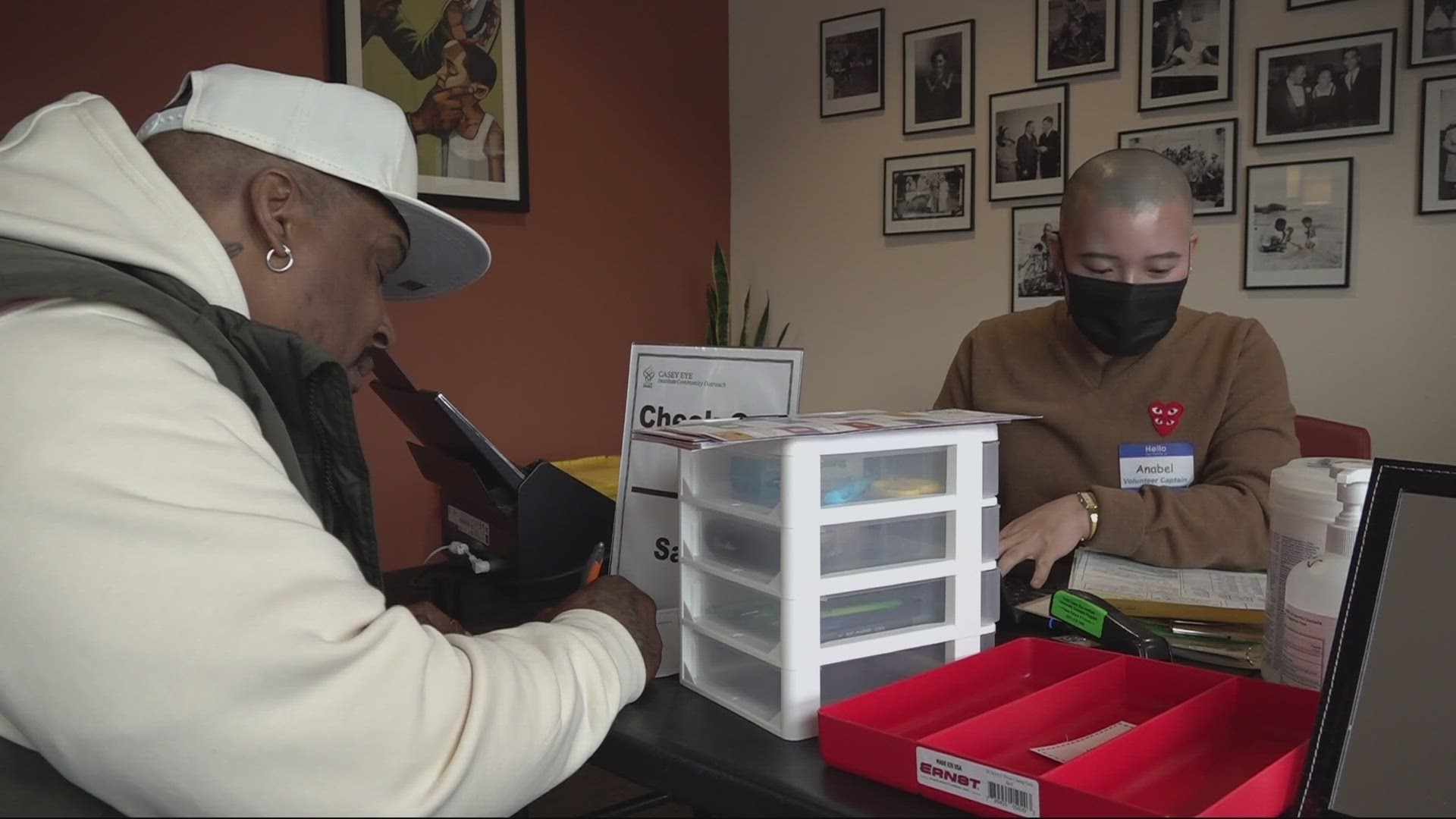PORTLAND, Ore. — Oregon Health & Science University (OHSU)'s outreach program and mobile clinic brings eye doctors to areas with less access — and with new donations, they're hoping to reach more patients in need.
OHSU first kicked off its Casey Community Outreach program in 2010. With more than $3 million in donations, they are expanding, adding another van, allowing them to see two patients at a time, like Gaylon Taylor.
Taylor has been coming to North by Northeast Community Health Center since 2008. Located on Northeast Alberta Street between 7th and 8th Avenue, it is the only medical clinic in Oregon devoted to African American and Black health.
“You can get the things that you need to help you stay alive," said Taylor. "I’m 58 years old. I’m trying to get older. I’m trying to live older than my mother and father."
On Saturday, North by Northeast Community Health Center teamed up with OHSU's Casey Community Outreach Program to bring their new mobile van to the clinic to provide free eye exams. About 35 patients were seen in the 39-foot-long mobile unit.
Ophthalmic technician Brittany Melvin-Broulette said OHSU’s Casey Community Outreach Program seeks to end preventable blindness.
“Say, for example, glaucoma, which takes away their peripheral or side vision," Melvin-Broulette explained. "They are not going to notice that without the testing that we can help provide and we can give to the community. Yes, they might have perfect vision that's just straight ahead, but when they are driving, they are not going to see someone that might enter onto the road or off the sidewalk.”
By driving across Oregon, they can meet people in low-income and rural areas with less access to free vision screenings and eye exams. Melvin-Broulette said this bigger, additional van will allow them to do so much more.
"There will be more privacy for the participants when they are seen by the physicians on the mobile unit," said Melvin-Broulette."There is also space. Previously, we would have to drive separately and have to pay for gas mileage. We now have seating for the staff to travel with the mobile unit.”
So far, the program has served more than 10,000 people, resulting in about 6,000 free prescription glasses.

